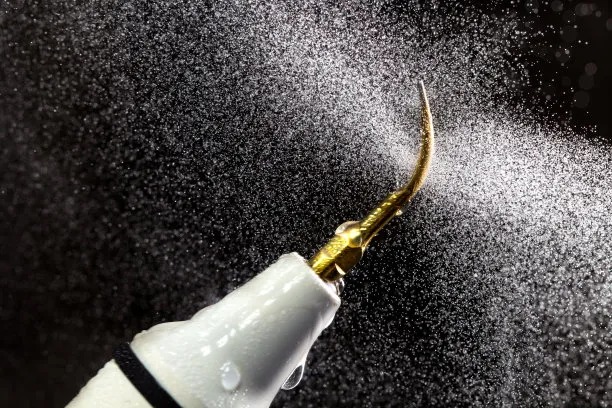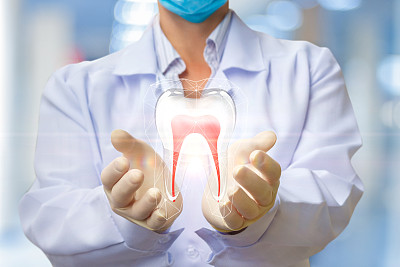Summary: Dental fillings are a common dental procedure aimed at restoring the function and integrity of a tooth impacted by decay, fracture, or wear. However, ensuring optimal oral health requires taking essential precautions both before and after receiving dental fillings. In this article, we will cover four crucial aspects: preparing for your dental appointment, understanding post-treatment care, maintaining long-term dental hygiene, and knowing when to consult your dentist. Each aspect includes valuable tips and guidance to help you achieve the best outcomes from your dental fillings, safeguarding your oral health for the years to come.
1. Preparing for Your Dental Appointment

Before heading to the dentist for your fillings, it’s imperative to prepare adequately. Start by following any pre-treatment instructions provided by your dentist. This may include avoiding certain foods or medications that could affect the procedure. For example, if you need sedation, you may be advised not to eat or drink for a specified amount of time.
Additionally, gather all relevant medical history to share with your dentist, especially if you have allergies or are currently taking medications. This information will help determine the best approach for your treatment and avoid any potential complications.
Packing a small bag with essentials such as a book or headphones can ease pre-appointment anxiety. A little distraction can make the wait seem shorter and help you feel more at ease as you prepare for the procedure ahead.
2. Understanding Post-Treatment Care
Once your fillings are complete, proper post-treatment care is crucial. Your dentist will provide specific aftercare instructions tailored to your situation. Common recommendations include avoiding chewing on the side of the mouth where fillings were placed for at least 24 hours to allow your mouth to heal and avoid dislodging the filling.
You may also experience temporary sensitivity to hot or cold foods. It’s wise to stick to a soft diet and pay attention to how various foods affect your newly filled teeth. If sensitivity persists beyond a few weeks, contact your dentist.
Maintaining good oral hygiene after receiving dental fillings is also essential. Brush and floss gently around the filled areas, being cautious not to irritate the surrounding gums. This will help ensure your filling lasts longer and prevent any future decay.
3. Maintaining Long-Term Dental Hygiene
Good dental hygiene practices are vital for sustaining oral health after getting fillings. Make it a habit to brush your teeth at least twice a day and floss daily. Consider using an antimicrobial mouthwash to further minimize the risk of plaque buildup around your fillings.
Regular dental check-ups are another essential part of maintaining dental hygiene. Aim to visit your dentist every six months for professional cleanings and check-ups. This allows your dentist to monitor the condition of your fillings and overall oral health, addressing any issues before they become serious.
A balanced diet rich in vitamins and minerals plays a significant role in dental health as well. Foods high in calcium, phosphorus, and vitamin D support strong teeth and gums. Limiting sugary snacks and beverages can help prevent future decay, serving as a protective measure for your fillings.
4. Knowing When to Consult Your Dentist
If you notice any discomfort, unusual sensations, or deterioration of the filling, it’s crucial to contact your dentist immediately. Ignoring these signals can lead to further complications, including infection or additional decay.
Be alert for symptoms such as persistent sensitivity, a visible crack in the filling, or clinically obvious wear. Furthermore, if you experience severe pain, swelling, or difficulty chewing, it may signify an underlying issue that requires immediate attention.
Don’t hesitate to ask your dentist any questions during your visits. Being proactive about your dental health is key; a good partnership with your dentist can help preemptively address concerns and ensure optimal care for your dental fillings.
Summary:
In summary, preparing adequately before getting dental fillings, understanding essential post-treatment care, maintaining long-term dental hygiene, and knowing when to consult your dentist are all critical steps for ensuring optimal oral health. By following these guidelines, one can safeguard their dental investment and promote lasting health. Take the time to prioritize your oral health now, and youll reap the benefits for years to come.
This article is compiled by Vickong Dental and the content is for reference only.
Vickong Dental
Vickong Dental is a large medical group established in Hong Kong in 2008 by professors from well-known medical universities in Guangdong and Hong Kong, as well as medical doctors from key national '985' universities (including Master's supervisors and senior professors). The chain of branches brings together expert dentists with PhDs and Master's degrees from Hong Kong and Mainland China, committed to providing high-quality dental treatment.
"Vickong Dental Practices the University Motto of 'Healing and Serving Society,' with a Stable Operation for Sixteen Years. It Has Been honored with Hong Kong Enterprise Leaders's Choice,' and is a Global Trusted Implant Center for the Nobel Implant System. Recommended by Hong Kong Metro Broadcast and Guangdong Television, it Serves Customers from Over Thirty Countries and Regions, Gaining the Trust and Favor of Citizens from the Guangdong-Hong Kong-Macau Greater Bay Area and Surrounding Cities.

Thousands of customers' unanimous praise
The most recognized and highly recommended dental service by customers in the Guangdong-Hong Kong-Macau Greater Bay Area
We Ensure You Receive Detailed Care and Attention Here
Hong Kong standards, Shenzhen prices, Your Trusted English-speaking dentists

Vickong Dental Medical-Grade Instrument Disinfection Process
Vickong Dental Medical-Grade Instrument Disinfection Process

Vickong Dental Chain: A Warm and Comfortable Environment for Treatment






Appointment Hours

Q&A
Why choose Vickong Dental?
Vickong Dental practices the university motto 「Medicine to Benefit Society」, with each branch bringing together highly qualified dentists with doctoral and master’s degrees from Hong Kong and the Mainland, and has maintained seventeen years of steady operation。Recipient of 「2024 Hong Kong Enterprise Leaders Brand」, 「2025 Hong Kong Enterprise Leaders Brand」, a Nobel Biocare Global Trusted Implant Center, and a brand recommended by Metro Radio Hong Kong and Guangdong TV。
To date, we have served customers from more than thirty countries and regions,earning exceptionally high word-of-mouth recognition and trusted recommendations from residents across the Guangdong-Hong Kong-Macao Greater Bay Area and surrounding cities
We have eight major branches in Zhuhai、Shenzhen,and a consultation and service assurance center in Hong Kong,so you can book a free consultation at any time for any questions,which is very reassuring.
If I do not accept the quotation after the CT scan, will I be charged??
No! As long as the actual treatment has not started, you will not be charged any fees.
Will there be any additional charges during the treatment process?
No, there won’t be any additional charges. Before treatment begins, we will clearly explain the treatment plan and its corresponding fees. Only after the patient agrees and signs the consent form will we proceed with the dental service.
Can I pay in Hong Kong dollars?
Yes. Vickong Dental accepts payment in Hong Kong dollars. The amount will be converted based on the exchange rate of the day, and the applicable rate will be clearly communicated to you in advance.
Can I reschedule my appointment at any time?
Yes. Please contact us via **WeChat** or **WhatsApp** as early as possible, providing your original appointment time and details, along with your preferred new date and time slot for rescheduling.













